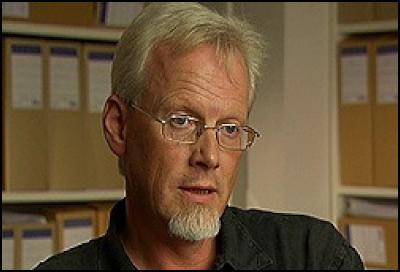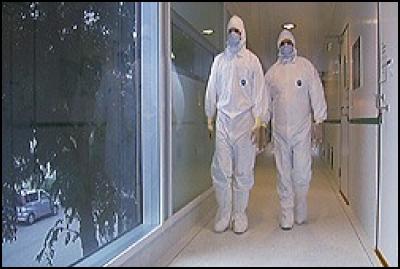Norway MENZB Doco: Exported Controversial Vaccine
Exported Controversial Vaccine
A preview of a documentary that aired on Norwegian TV this morning (NZ time)

By Connie Barr, Karen Aarre and
Kjell Persen
TV2.no Reporters
Translation
of article from: http://pub.tv2.no/TV2/magasiner/dokument2/article771764.ece
At the same time while Norwegian authorities were paying compensation to vaccine victims, the same vaccine was exported to New Zealand and used on small kids. To say it nice, they enlisted hundreds of thousands of small kids into a gigantic experiment, says Jan Helge Solbakk, professor in medical ethics.
1988 started the largest experiment ever conducted on Norwegian population. 180,000 school teenagers were used as test subjects in the largest Norwegian vaccine trial ever. It lasted from 1988 to 1991.
Norwegian Institute for Public Health was testing it's new vaccine against meningococcus b, dangerous bacteria that kills 30 people every year in Norway.
The information brochure given to teenagers states: " it is unlikely to expect serious complications ", while the information submitted to the Norwegian Parliament states: " serious side effects can not be excluded " during the experiment.

Jan Helge Solbakk, professor of medical ethics - Foto: TV 2
Jan Helge Solbakk, professor of medical ethics, was working on the ethical sides of the trial. He claims: "project leaders knew that trial subjects may suffer serious complications during the trial, statistically speaking."
"Trial subjects were not properly informed about the possibility of serious side effects during the trial. We encouraged the project leaders, during an open meeting, to do it in a better way, informative way" says Solbakk to Dokument 2.
- 512 side
effects were reported during the vaccine trial.
- 14 were
considered serious.
- 5 school kids developed serious
neurological diseases.
During the second trial, involving 53,000 kids, 10 serious side effects were reported, while 1 child developed serious neurological disease.
Worried about the side effects
Hans Cato Guldberg, professor of medicine, was a member of a committee that was to evaluate side effects during the experiment. He was worried.
"Some time after the experiment was over, I came to a conclusion that there were serious side effects to this vaccine. And, the number was relatively high. I was worried. At the same time, I felt that project leaders were trying to tone down the danger of vaccine, said Guldberg.
Results of the vaccine trial were compiled 1991. Vaccine was providing protection in 57% of cases. That was not enough to add it to the Norwegian vaccination program. As meningococcus b epidemic was dying out, vaccine was never used in Norway the way it was meant.

Foto: TV 2
After the request from the World Health Organization (WHO), vaccine was exported to New Zealand, during 2001. Using the same technology and the same methodology from 1980s, researchers from the Norwegian Institute of Public Health tailored a new vaccine for New Zealand. The multinational pharmaceutical company Chiron was awarded rights to mass produce the vaccine.
Usually, vaccine is supposed to pass different tests before it is approved for mass use on population. But this vaccine was tested in a record short time. Phase III trials were totally dropped. Rare side effects are often not discovered before the phase III trials. Phase III trials are randomized, placebo controlled trials. Instead of testing this new vaccine through a new phase III trial, safety data and affectivity data were just taken from the Norwegian vaccine and assumed valid for the New Zealand vaccine. Because safety data of this vaccine was incomplete, the vaccine was not officially approved on New Zealand. Instead, mass vaccination of 1.1 million New Zealand kids started with a temporary approval.
Breach of the international research ethics
In New Zealand, the Norwegian vaccine was used as guarantee that the New Zealand vaccine is safe and effective. It was the Norwegian Institute of Public Health that was the guarantor.
"First: Norwegian vaccine was not safe! Second, it is a serious overstatement to say that vaccine is effective. Third: it is against international regulations and against research ethics to start to vaccinate small children on New Zealand with a vaccine that was tested on a different group of people, Norwegian school kids. To say it nice, they enlisted hundreds of thousands of small kids into a gigantic experiment," says Jan Helge Solbakk, professor in medical ethics."
Quote: "Some time after the experiment was over, I came to a conclusion that there were serious side effects to this vaccine. And, the number was relatively high. I was worried. At the same time, I felt that project leaders were trying to tone down the danger of vaccine."
Hans Cato Guldberg, professor of medicine, was a member of a committee that was to evaluate side effects during the experiment.
ENDS


 Gordon Campbell: On Free Speech And Anti-Semitism
Gordon Campbell: On Free Speech And Anti-Semitism Ian Powell: The Disgrace Of The Hospice Care Funding Scandal
Ian Powell: The Disgrace Of The Hospice Care Funding Scandal Binoy Kampmark: Catching Israel Out - Gaza And The Madleen “Selfie” Protest
Binoy Kampmark: Catching Israel Out - Gaza And The Madleen “Selfie” Protest Ramzy Baroud: Gaza's 'Humanitarian' Façade - A Deceptive Ploy Unravels
Ramzy Baroud: Gaza's 'Humanitarian' Façade - A Deceptive Ploy Unravels Keith Rankin: Remembering New Zealand's Missing Tragedy
Keith Rankin: Remembering New Zealand's Missing Tragedy Gordon Campbell: On Why The Regulatory Standards Bill Should Be Dumped
Gordon Campbell: On Why The Regulatory Standards Bill Should Be Dumped